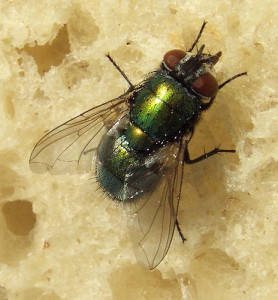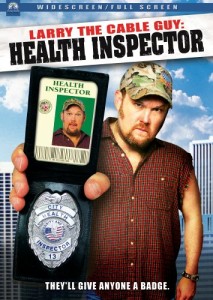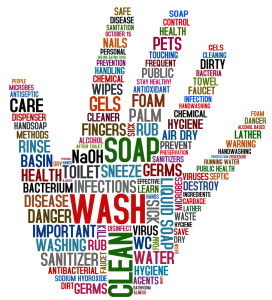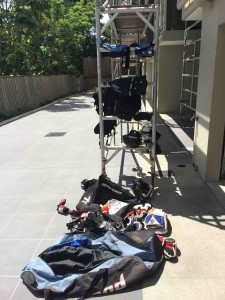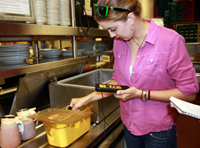An op-ed by me in this morning’s Brisbane Courier-Mail:
 If Brisbane wants to be the world-class city it aspires to be, put aside obsessions with TV cooking shows, with political inanities, with imports and focus on what makes people — such as 175 delegates at a school principals’ conference — sick.
If Brisbane wants to be the world-class city it aspires to be, put aside obsessions with TV cooking shows, with political inanities, with imports and focus on what makes people — such as 175 delegates at a school principals’ conference — sick.
After decades of food safety research, I can conclude anyone who serves, prepares or handles food, in a restaurant, nursing home, day care centre, supermarket or local market needs some basic food safety training. And the results of restaurant and other food service inspections must be made public and mandatory.
Here’s why. Parenting and preparing food are about the only two activities that no longer require some kind of certification in Western countries. To coach little kids ice hockey in Brisbane, which I do, required 16 hours of training. But anyone can serve food.
Cross-contamination, lack of handwashing and improper cooking or holding temperatures are all common themes in food-service related outbreaks — the very same infractions that restaurant operators and employees should be reminded of during training sessions and are judged on during inspections.
 There should be mandatory food handler training, for say, three hours, that could happen in school, on the job, whatever. But training is only the start. Just because you tell someone to wash their hands after using the toilet before they prepare salad for 100 people doesn’t mean it is going to happen; weekly outbreaks of hepatitis A confirm this. There are incentives that can be used to create a culture that values safe food and a work environment that rewards hygienic behaviour.
There should be mandatory food handler training, for say, three hours, that could happen in school, on the job, whatever. But training is only the start. Just because you tell someone to wash their hands after using the toilet before they prepare salad for 100 people doesn’t mean it is going to happen; weekly outbreaks of hepatitis A confirm this. There are incentives that can be used to create a culture that values safe food and a work environment that rewards hygienic behaviour.
Next is to verify that training is being translated into safe food handling practices through inspection, which should be public and mandatory.
Brisbane’s star system is voluntary, which means an owner can choose to not display results if they suck. The best cities — Toronto, Los Angeles, New York — have mandatory disclosure.
In the absence of regular media scrutiny, or a reality TV show where camera crews follow an inspector into a place unannounced, how do diners know which of their favourite restaurants are safe?
Cities, counties and states are using a blend of websites and letter or numerical grades on doors, and providing disclosure upon request.
In Denmark, smiley or sad faces are affixed to restaurant windows.
Publicly available grading systems rapidly communicate to diners the potential risk in dining at a particular establishment and restaurants given a lower grade may be more likely to comply with health regulations in the future to prevent lost business.
More importantly, such public displays of information help bolster overall awareness of food safety among staff and the public — people routinely talk about this stuff. The interested public can handle more, not less, information about food safety.
I volunteer at my daughter’s school tuck shop — no inspection, no training — and they’re serving meals to kids. Principals visiting Brisbane, unfortunately, learnt the importance of food safety.
Dr. Douglas Powell is a former professor of food safety at the University of Guelph in Canada and Kansas State University in the U.S., who is now based in Brisbane.
dpowell29@gmail.com
0478 222 221
 Agents from local consumer protection watchdog Procon found the products during Sunday’s football derby between Fluminense and Botafogo, Procon said in a statement on Monday. Among the items confiscated were sausages, eggs, pork, chocolate and cheese, reports Xinhua.
Agents from local consumer protection watchdog Procon found the products during Sunday’s football derby between Fluminense and Botafogo, Procon said in a statement on Monday. Among the items confiscated were sausages, eggs, pork, chocolate and cheese, reports Xinhua.
